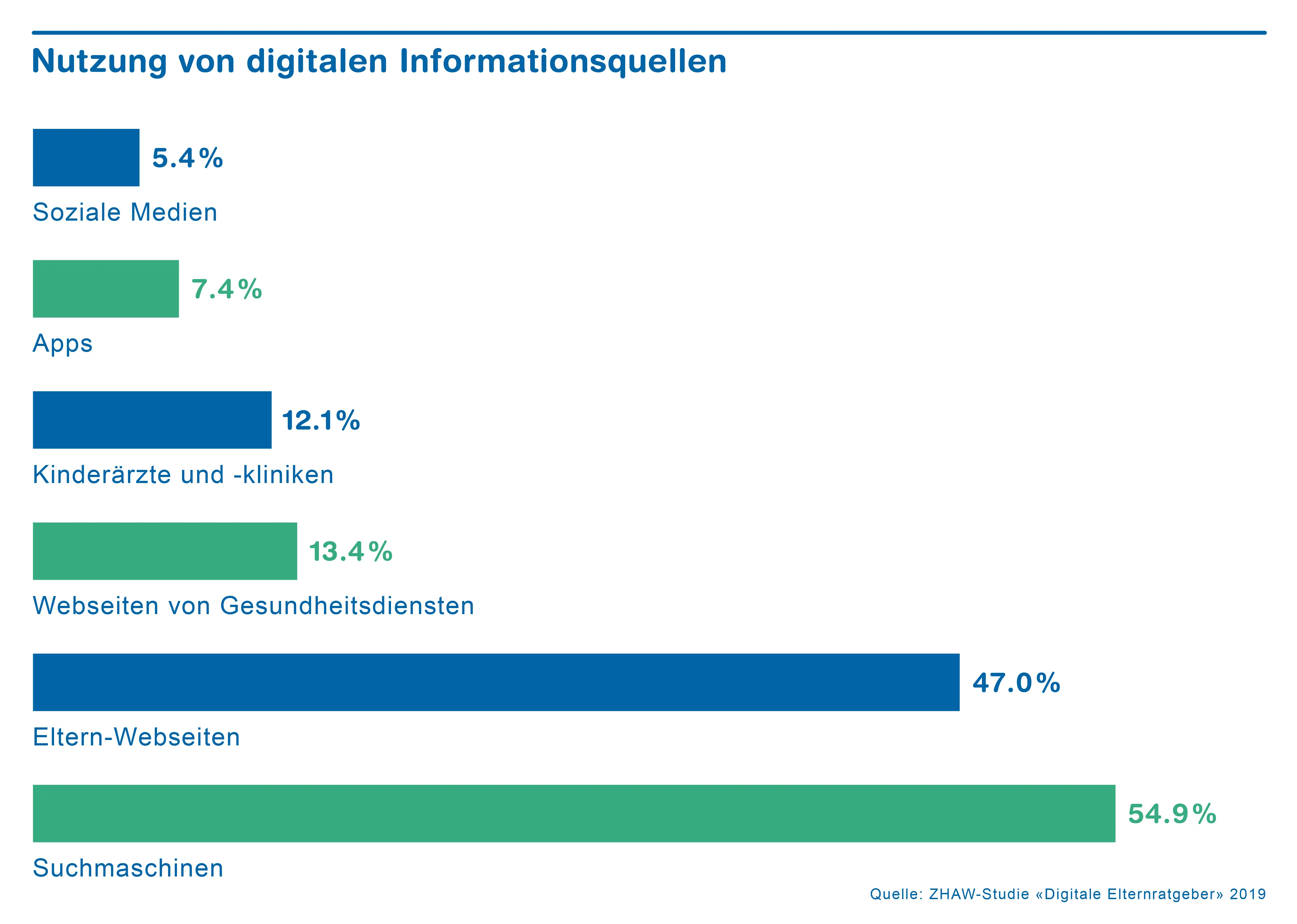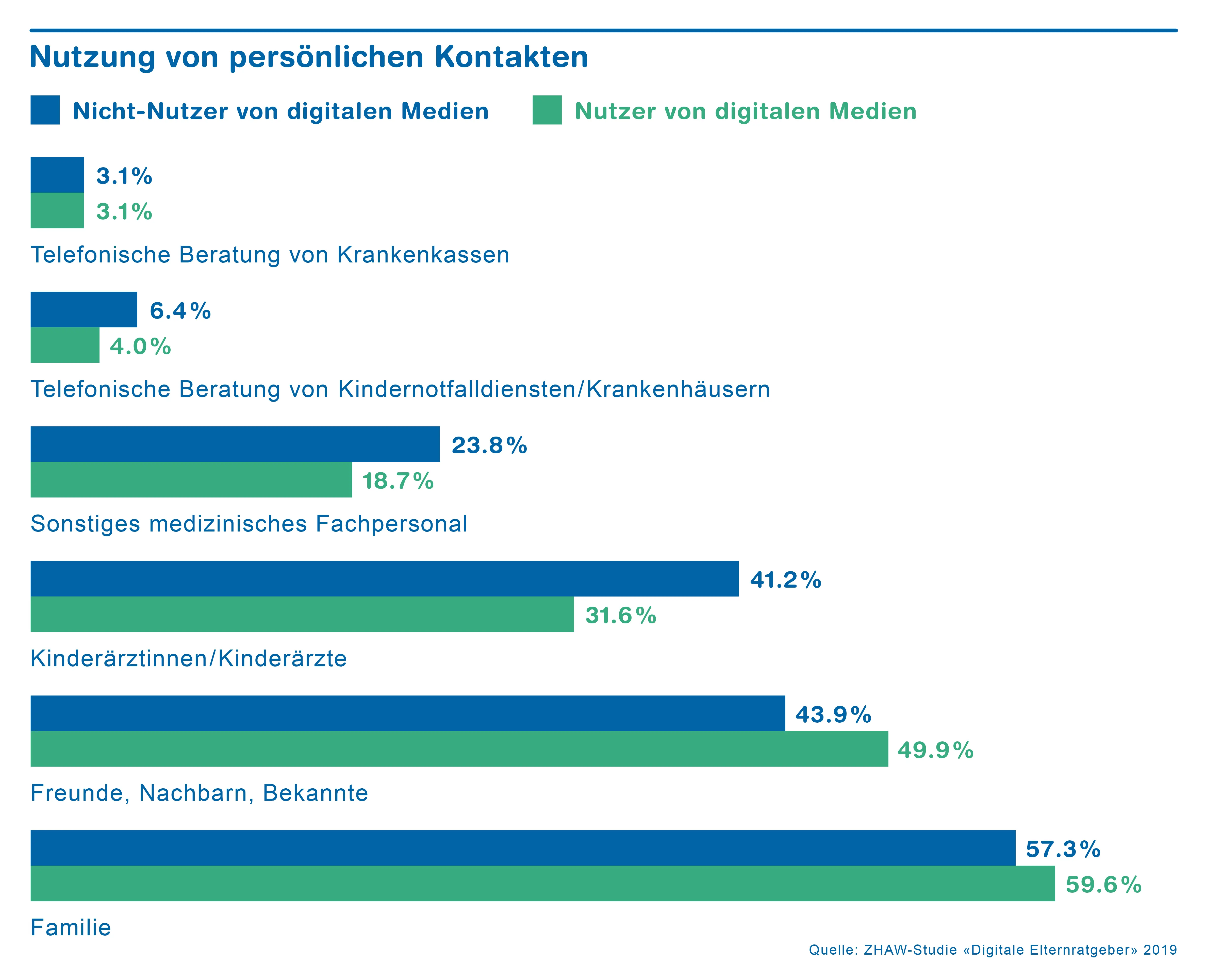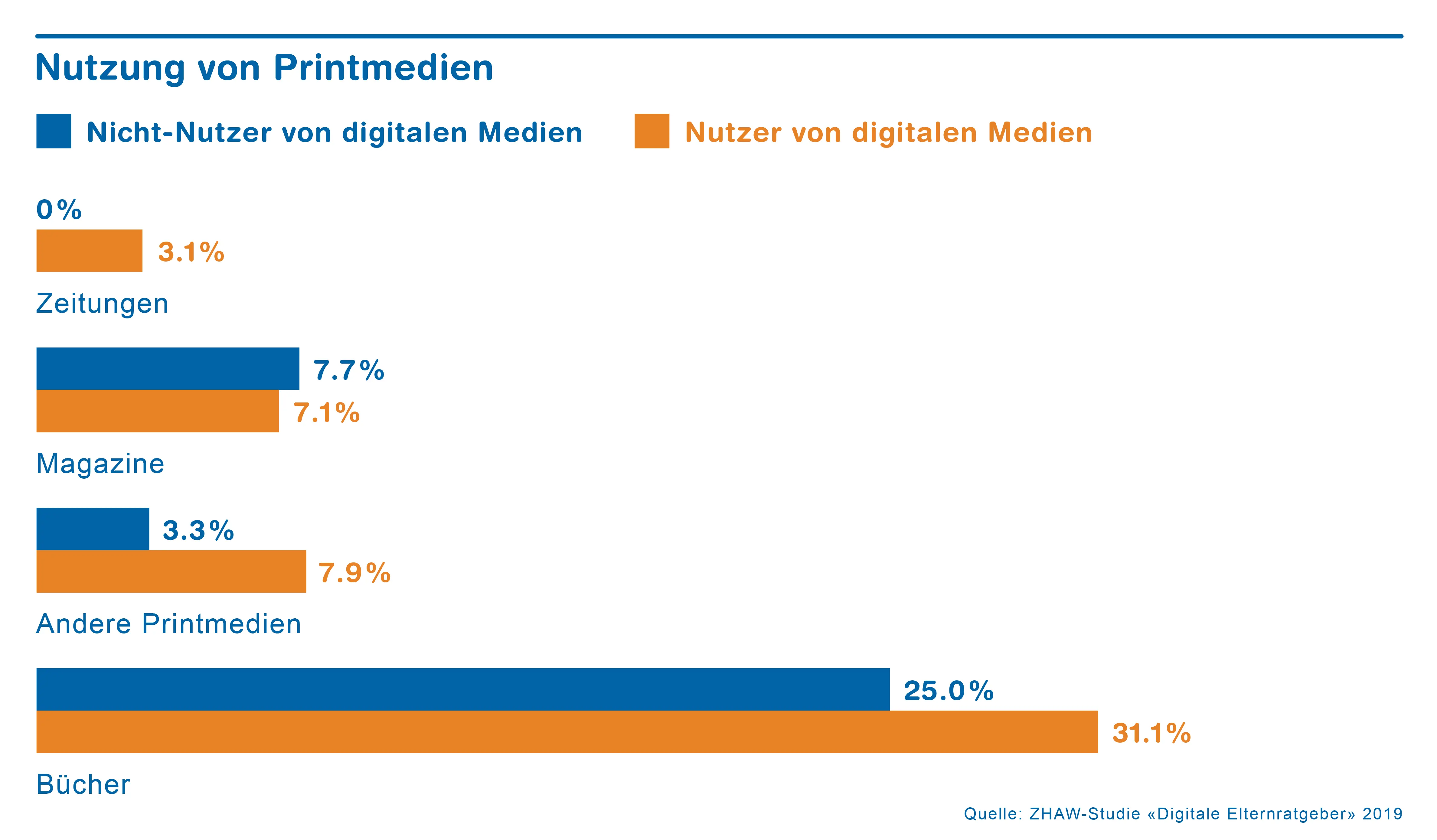Google makes parents feel insecure
Although Swiss mothers and fathers often consult digital child health guides, they are very insecure about how to deal with them. Moreover, information retrieved from the internet does not have any significant influence on interaction between parents and doctors, as a ZHAW study shows.

As soon as a child has a slightly sore throat, a red spot on the arm or a twinge in the back, parents resort to him: Doctor Google. Countless websites, forums, apps and social networks also offer advice for parents who want to find out about their child's health and development. The ZHAW has conducted an online survey among 750 German-speaking couples with children aged 0 to 24 months as well as focus group interviews with doctors and a selection of the parents surveyed. The study, which is financed by the Käthe Zingg-Schwichtenberg Fund/SAMS, shows that more than 90 % of parents use digital media to find information on their children’s health and development. Their primary sources are search engines and specific parent websites (47 %). In contrast, social media (6 %) and apps (8 %) are not used very much.
«In this regard, our results differ from those of other countries, where apps and social media play a much bigger role,» says Julia Dratva, director of the study at the ZHAW School of Health Professions.
Personal exchange the most important source of information
Although widely used, digital media has not yet replaced the «classic» information channels. Print media is consulted with similar frequency, with parents mainly resorting to books. Approximately 31 % of digital media users also consult books. As the study shows, however, social contacts are still the main source of information. All study participants exchanged information with at least one person on topics relating to children’s health and development. This exchange may happen informally with family, friends or acquaintances or formally with paediatricians. Even «digital natives» rate personal exchange highest as a source of information. Around 50 % usually consult friends and acquaintances, and around 60 % ask their families for advice.
Scepticism regarding online sources
Parents consult online sources mainly for information on general health topics. Digital media also provides a first stop if parents encounter something that they cannot classify at all. For minor problems, parents often research household remedies. «If the child is acutely ill, however, digital information channels are consulted much less,» says Julia Dratva. This is probably also due to a lack of trust in digital media. For example, 90 % of parents believe that information found in the internet is «only sometimes» true. Two thirds also try to verify the trustworthiness of online sources. Only half of the parents interviewed said they could understand and assess the information retrieved from the internet. «Parents deal with their insecurities regarding digital media by ultimately consulting a specialist anyway,» says the ZHAW researcher.
Parents wish for guidance
Before going to a paediatrician, roughly half of the parents consult digital media. They retrieve information on general health topics, as well as medical treatment and alternative options. More than a quarter use online guides after going to the doctor, focusing on exchanges with other parents and reports of personal experience in these cases, too. Some also consult the web because they receive too little or contradictory information from their doctor, or in order to find alternative treatment options. Although digital sources are thus consulted for a second opinion, they have no significant effect on the interaction between parents and doctors. «Medical advice is complemented or checked with the help of digital information, but it still carries more weight in health-related decisions,» explains Julia Dratva. In addition, parents wish for more guidance in dealing with digital media because of their insecurity.
«The potential of digital information retrieval could still be better exploited,» says the ZHAW researcher. However, the prerequisites for this are improved digital media and health literacy, as well as comprehensible, high-quality and scientifically sound digital information on children’s health. Julia Dratva is convinced that if parents were enabled to take a more active part in decision-making, this would ultimately relieve the health care system as well.
Contact
- Julia Dratva, Institute of Health Sciences, ZHAW School of Health Professions, phone 058 934 84 33, e-mail: julia.dratva@zhaw.ch
- José Santos, Head of Communications ZHAW School of Health Professions, phone 058 934 63 84, e-mail jose.santos@zhaw.ch


